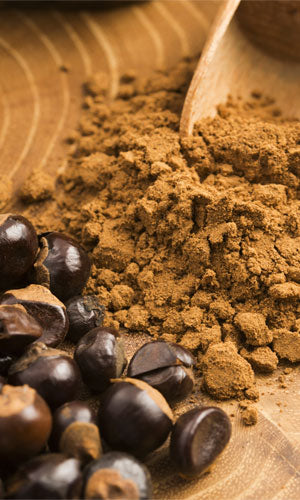
Guarana is a plant native to the Amazon basin, known for its high caffeine content. It has been used in traditional medicine for centuries, and in recent years, it has gained popularity as a natural supplement to improve exercise performance. In a recent study published in the Journal of the International Society of Sports Nutrition, researchers investigated the effects of guarana on exercise performance and metabolism in humans.
The study was a randomized, double-blind, placebo-controlled trial, meaning that the participants were randomly assigned to either a guarana group or a placebo group, and neither the participants nor the researchers knew which group they were in. The study included 10 healthy young men who were recreational athletes.
The participants were given either a placebo or a guarana supplement containing 400mg of guarana extract one hour before a cycling test. The cycling test consisted of four 10- minute cycling intervals, with a 5-minute rest period in between each interval. During the cycling test, the participants' oxygen consumption, heart rate, and blood lactate levels were measured.
The results showed that the participants in the guarana group had significantly improved exercise performance compared to the placebo group. They were able to cycle for a longer time and at a higher intensity than the placebo group. The guarana group also had lower blood lactate levels during the cycling test, indicating that they were able to maintain a higher level of exercise intensity without experiencing fatigue.
To investigate the mechanism behind guarana's effects on exercise performance, the researchers measured the participants' metabolism during the cycling test. They found that the participants in the guarana group had significantly higher rates of fat oxidation during the cycling test compared to the placebo group. Fat oxidation is the process by which the body uses stored fat as a source of energy during exercise. This suggests that guarana may help the body burn fat more efficiently during exercise.
The researchers also measured the participants' levels of epinephrine and norepinephrine, two hormones that are released during exercise and play a role in the body's response to stress. They found that the participants in the guarana group had significantly higher levels of these hormones compared to the placebo group. This suggests that guarana may enhance the body's response to stress during exercise, which could contribute to its positive effects on exercise performance.
Overall, the study provides strong evidence that guarana has positive effects on exercise performance and metabolism in humans. The results suggest that guarana can improve exercise performance by increasing fat oxidation, reducing fatigue, and enhancing the body's response to stress during exercise.
The study's findings have important implications for athletes and fitness enthusiasts who are looking for natural ways to improve their physical performance. Guarana may be a safe and effective supplement for improving exercise performance and increasing fat oxidation.
However, it's important to note that the study was conducted on a small sample size of healthy young men, and more research is needed to determine whether the findings apply to other populations, such as women or older adults. Additionally, it's important to consult with a healthcare professional before taking any new supplements, including guarana extract.
In conclusion, guarana has been shown to have positive benefits for exercise performance and metabolism in humans. Its ability to increase fat oxidation, reduce fatigue, and enhance the body's response to stress during exercise make it a promising natural supplement for athletes and fitness enthusiasts. However, more research is needed to fully understand the effects of guarana on different populations and to determine the optimal dosages for improving exercise performance.
Further reading:
https://www.ncbi.nlm.nih.gov/pmc/articles/PMC4555111/

